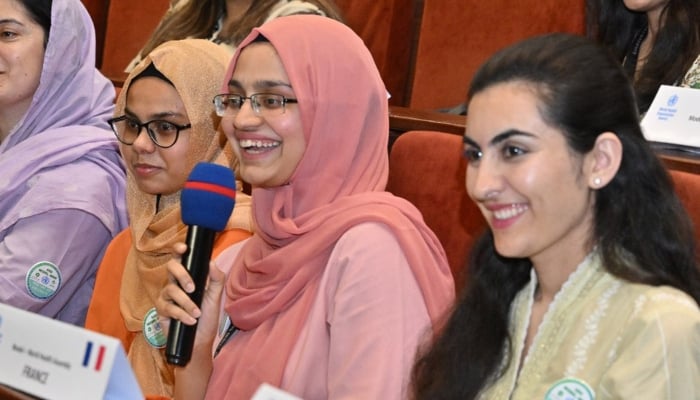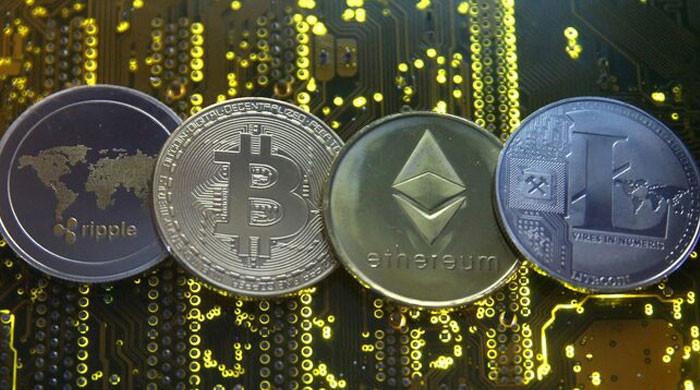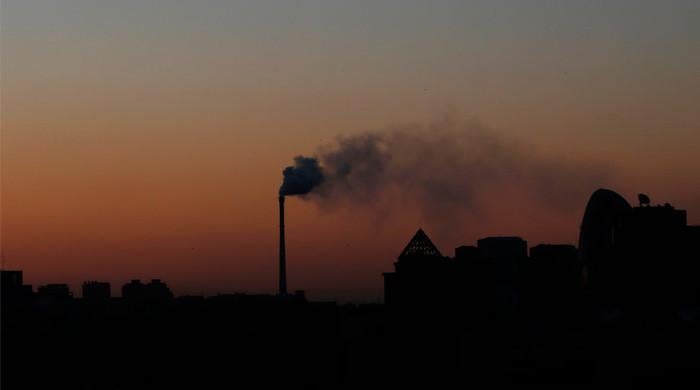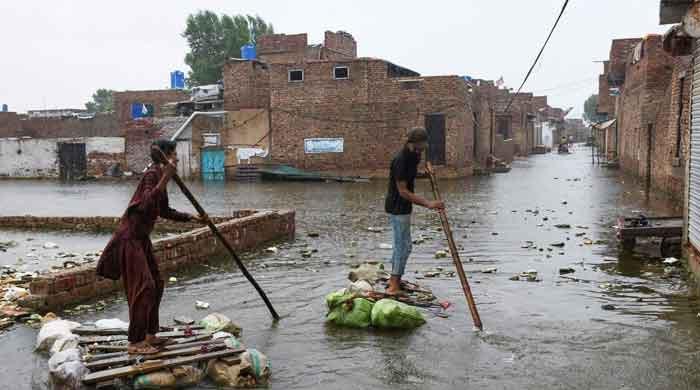The new age of darkness
While many believe that dark contents of social media restricted to West, the truth appears to be quite different
April 24, 2025

In Pakistan, 65% of the population is currently aged under 30 years. 63% of this population is aged between 15 and 30 years. In other words, most of them belong to the generation titled ‘Gen Z’, which has become the focus of global attention, notably after the airing of the British television series ‘Adolescence’. We need to take note of the discussion generated by the series in Pakistan as well.
While many believe that the dark contents of social media are restricted to the West, the truth appears to be quite different, according to the limited research conducted on the issue. This is significant given that 31% of Pakistanis own smartphones, according to data collected in 2024 and the number is especially high amongst younger people. This is the age group most exposed to darkness on the internet and spaces where evil in various forms lurks.
This is not evil in the sense of pornographic content or other similar material. In recent years, there has been a growth in secret languages used by younger people, particularly among themselves. There is also the use of symbols, which they comprehend but which parents may not be familiar with. A blue pill, for example, suggests the availability of a particular substance, a black phone suggests a dealer is available, and there are other words and emojis which characterise an individual as being attractive or unattractive.
All this has created a curious culture in which individuals who do not seem able to attract the opposite gender to themselves to talk or socialise with are labelled ‘incel’. This essentially stands for involuntary celibacy, but is used more broadly in Pakistan for men/boys in particular who are seen as being uncool or not able to obtain female/girl friends of any kind.
The world of incel is also extremely violent and misogynist, with women undermined and disrespected, feminists looked upon with hatred and animal cruelty encouraged as a sign of being macho or being the kind of alpha male young boys or young men apparently wish to be. Coupled with the paternalistic misogynist culture that already exists in Pakistan, this creates a very dangerous environment.
Incel groups appear to be increasing in Pakistan and one was uncovered in 2019 at a university in Lahore by a few male students who found that at least 600 persons, mainly fellow students, mainly male but also females, were involved in an incel group which attacked female students and put out abusive videos of animals being tortured in various ways as well as vile comments directed at those who they saw as enemies. There have also been cases of women and young girls being harassed and bullied by those who are members of such groups. In other cases, men who are seen as being unable to make female friends are the ones targeted for harassment.
Parents, teachers, counsellors, and other people engaged with young people need to be more aware of what we are doing when we put a smartphone, a tablet or a laptop in the hands of a child or a young person. There is growing evidence that this can be dangerous. The availability of the phone or other high-tech instruments and the material on it exposes children, who are not yet mature, to the dangerous cultures of various kinds.
In Karachi, a young man linked to the case of Mustafa Amir, another young man allegedly involved in the sale of drugs online, has said that he was selling drugs on Snapchat. There are also many other forums in which drugs are sold and then used by young people of all kinds.
This, then, is the dangerous world in which young people live. Their secret lives online are often unknown to parents and, at any rate, the words and emojis used would not be understood by most adults who stand outside Gen Z while the upcoming Gen Alpha, the group of people born after 2010, are thought to be somewhat less involved in dark internet cultures but, of course, vulnerable to them as they grow older and gain access to the internet.
Countries such as Britain have tried to restrict the number of screen hours available to children under the age of 16. But this will be a very difficult rule to enforce in that country or others that have put in place similar legislation. It will be almost impossible to enforce in Pakistan, where parents are less literate and less aware of what kind of symbols and dangers exist on the internet.
One result of the bullying and harassment young people face online and encounter on all kinds of forums, including Facebook, YouTube, Instagram, Snapchat and other forums such as Reddit, is bullying based on their appearance and their ownership of various items. The result is a breakdown of mental health among young people, with global research suggesting that Gen Z, or people born in the late 1990s to the mid-2000s, are the most anxious generation of our time and need major help with mental health.
There needs to be far greater awareness of this in our country. Too often, phones or tablets are handed over to children as young as three or four, without realising what possible damage lies in the virtual space that these children have access to and how they will grow with its darkness in the years to come. Phones are an easy way to parent a child and give the parents time to use their own phones or engage in other activities. But there has to be a realisation that this can be extremely dangerous. Currently, in schools, parents often refuse counselling sessions on drugs and the use of social media. This needs to change. Only if adults are aware and conscious of what is happening can children and young people be made safer and given the help that they need.
It is good to see the issue being discussed on various forums in Pakistan as well, notably after the release of ‘Adolescence’. But the debate needs to be stressed out far wider and an understanding reached of how various income groups and various categories of children or teenagers may be vulnerable to a phenomenon which takes place within their homes, but in a world that's beyond their age group and truly look inside.
The writer is a freelance columnist and former newspaper editor. She can be reached at: [email protected]
Disclaimer: The viewpoints expressed in this piece are the writer's own and don't necessarily reflect Geo.tv's editorial policy.
Originally published in The News











